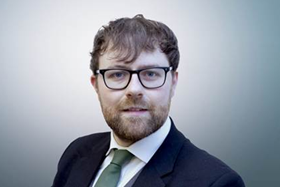
Tim Kiely is a criminal barrister at Red Lion Chambers. Tim attended Bar Conference 2025 in Birmingham, where he felt it was clear that the overarching theme was change and optimism about what the future holds for justice and the Bar.
When Sarah Sackman KC MP spoke at the opening this year’s Bar Conference, you could be forgiven for feeling something like hope, especially after the last few decades of hearing politicians speaking about the law and lawyers.
Instead, here was a minister speaking with an earnest regard for the justice system as “a key public service”, a vital component of democracy and a vocation underpinned by a sense of duty. With that kind of opening and with a closing panel including Baroness Harman KC on ‘evolving’ the culture of the Bar to address longstanding issues of bullying, it was obvious that our environment had shifted.
Could it be the case that some of the Bar’s years of self-advocacy was now paying off? Whisper it “…but things might just be changing”
Change – both our appetite for it and the sense of it being upon us – was very much the theme of this first Bar Conference under a new government. Barbara Mills KC, Chair of the Bar of England and Wales, described 2025 as ‘the year of the review’, a long process of coming to terms with both the tests which the justice system is already facing and breaking what she called “the pattern of justice lurching from crisis to crisis”.
That said, the looming presence of the Spending Review had clearly not been forgotten by any of those attending. We are all uncomfortably aware of how much rests on the Ministry of Justice being able to make its case to the Treasury, and these are not the most forgiving of times. We didn’t get the Royal Commission we were hoping for but the prospect of both the Gauke and the Leveson Reviews have provided much scope for commentary, some of it surprisingly hopeful.
When Kirsty Brimelow KC, as part of the Justice under review panel, was asked to express her optimism as a score out of 10 and gave an 8, she might have been something of an outlier – but not by much. She even shared her score with Tom McNeil of the JABBS Foundation, even while he underlined how much work there still was to be done on providing high-quality community support. Change comes as much, we must remember, from an act of will as anything else.
Knowing the scale of the change envisioned, the scope of the conference was especially wide-ranging, even from breakout to breakout. Not everyone might have quite the same sense of mission as those on the Planning for development and the environment panel where, as Richard Kimblin KC put it, “here you actually get to save the world you’re living in!”. But then, as the panel themselves noted, the increasingly successful claims made on environmental and human rights grounds, quite apart from their impact on other areas of law, also indicate the degree to which law and the democratic process are becoming even further enmeshed (even beyond the comfort of some British justices, as in the cases of Finch, Swiss Senior Women and others).
That sense of a changing public relationship with the institutions of the law also rippled through a fascinating and provocative panel on Public inquiries: truth seeking or time wasting? Dealing with an area of the law where even very progressive governments find their patience with an independent judicial system tested, the panel also explored frankly whether it is even possible for an inquiry to ever meet the demands of public expectations – or even whether their needs might better served by a non-statutory inquiry over a statutory one. As the Grenfell Inquiry illustrated vividly, said Jason Beer KC, even a very thorough undertaking should really be the first step in the process, not the last, at least not without some radical steps, such as granting inquiries the power to impose regulatory sanctions or even prefer indictments in appropriate cases.
No doubt, we are far from out of the woods and nobody at the Bar believes that it will be quick or easy to see the wide-scale change we need. But we are also, as this Conference demonstrated, a profession hungry for real change and possessed of the cause, the will and the strength to see that it happens. That hope in your chest – hold on to it.
